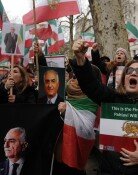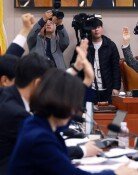[Opinion] Dilemma Of Korea-Japan Cultural Exchange
[Opinion] Dilemma Of Korea-Japan Cultural Exchange
Posted July. 23, 2001 09:52,
After the Japanese government had made clear that it would not revise the history textbooks, the Korea-Japan relationship is quickly freezing. This negatively affects not only the diplomatic relationship, but also the cultural exchange. The Korea-Japan cultural exchange activities have already been canceled. The suspension of the youth exchange programs in the middle- and high schools are also taking place. The Ministry of Culture and Tourism (MCT) announced the delay of the fourth opening of the Japanese mass culture.
This kind of correspondence reminds the strong tornado. The conflict with Japan in relation to history has been concluded this way. It is unavoidable that we, as the victim, feel furious to Japan who does not want to admit the historical truth.
Another face of tornado is that it is easily forgotten once it is all gone. As time passes, the issue of textbook will be faded away from the people`s interest.
The incident of dismantling of the Chosun Government-General building comes to mind. It is as if yesterday that the government held a pompous ceremony and dismantled the whole building saying that the vestiges of Japanese colonialism should be eliminated. However, the existence of building itself has disappeared from people`s memory. We just hope that the lesson from history, which had to offer the site of Palace Kyungbok for the Chosun Government-General building, will not be forgotten.
From now on, when we deal with the issues related to Japan, it is necessary to take countermeasures reasonably. In other words, long-term countermeasures should be taken instead of being temporarily agitated and quickly forgetting. We should not take a step backward about certain issues in relation to Japan. However, apart from this, it is right to continue ordinary exchanges as usual if Japan is an unavoidable nation as a neighbor.
However, some of the government`s countermeasures are impromptu and not carefully thought out. For example, the government`s plan to cancel the joint cultural activities between the Korean-Japanese government with regard to the next year’s World Cup game, or the suspension of the opening of the Japanese mass culture, are such countermeasures.
In terms of World Cup activities, cultural and arts organizations under the MCT said that they have withheld the plan according to the hard-line stance of the government. However, the suspension of activities is to bring about one’s own ruin because the World Cup activities are not simply the joint activities with Japan, but the activities through which we can make our culture known to the world.
In terms of the opening of the Japanese mass culture, our government bars the cultural exchange regardless of the Japan’s opinion. Cultural travel and exchange are natural phenomena like the flowing water. It is abnormal to artificially bar the import of mass culture. It is more unreasonable to use the matter of importing mass culture as a means to `press`.
Cultural exchange may be the most effective means to persuade Japan, including the issue of the history textbooks. It may be more productive to take measures resolutely on the issue of cultural exchange apart from the diplomatic relationship. A more important matter in the Korea-Japan relationship seems for us to sustain historical consciousness. The most fundamental and reliable solution to the historical issues is not to forget the tragic history and not to repeat the same wrongdoings.
chansik@donga.com







